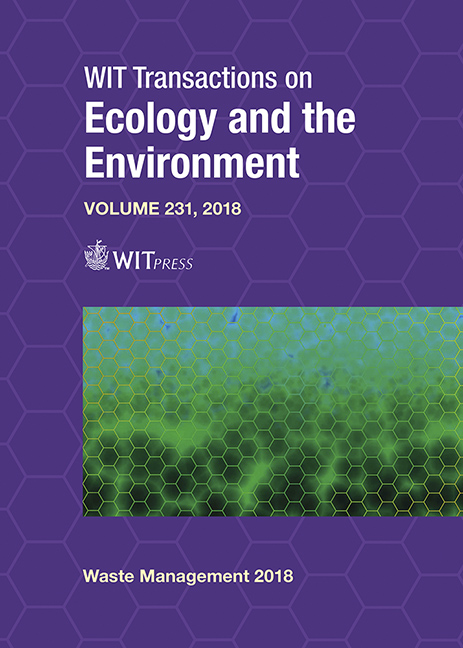ANALYSIS OF SOLID WASTE MANAGEMENT IN MAITAMA, ABUJA, NIGERIA
Price
Free (open access)
Transaction
Volume
231
Pages
10
Page Range
11 - 20
Published
2019
Paper DOI
10.2495/WM180021
Copyright
WIT Press
Author(s)
JOSEPH FREEDOM GAJERE, FOLORUNSHO JOSEPH OLANIYI, YUSUF YAKUBU OBADAKI, ARUYA EMMANUEL IRUOBE
Abstract
Municipal solid waste management constitutes one of the most crucial health and environmental problems facing the world especially African cities. Most cities spend 20–50% of their annual budget on solid waste management. This study analysed solid waste management in Maitama, Abuja. The set objectives were to identify the structure of solid waste management in Maitama district, the sustainability of the process from generation to disposal and the role of scavengers in solid waste management in Maitama. These were carried out by administration of questionnaires to the residents and waste managers. The socio-demographic characteristics in the study revealed that there were more women than men in the study area. The study also revealed the heterogeneous nature of solid waste composition in the area which may require sorting for effective recycling process. Although most residents adjudged the services (collection and disposal) of the solid waste managers as satisfactory, others recounted poor sanitary habits of respondents and refusal to pay waste managers as the problems of solid waste management in the study area. The waste managers regarded this as unfortunate because the meagre charges do not fully cover the cost of waste collection, transportation and disposal. Therefore the study recommended that in order to ensure efficient solid waste management in the study area, there should be increased awareness to encourage residents to be consistent in payment and waste separation should be done at source to make waste disposal easier.
Keywords
Abuja, Maitama, municipal, solid waste management





